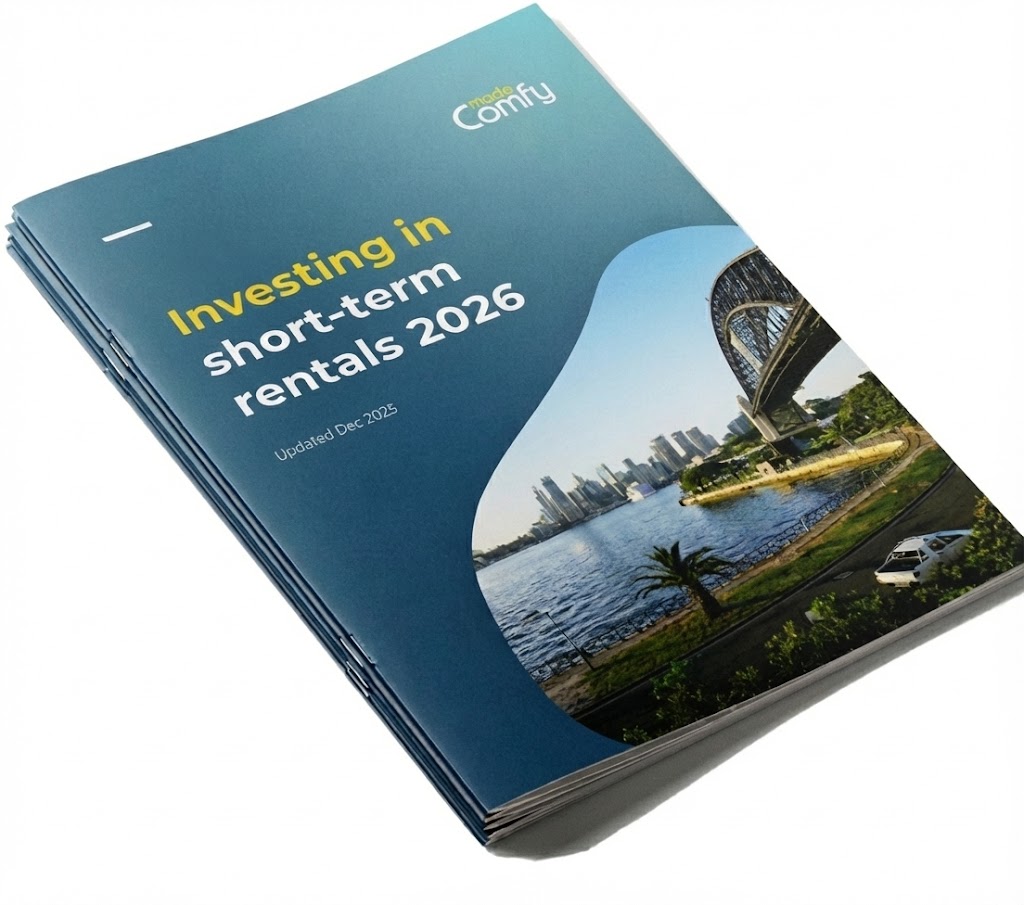8 reasons why real estate agencies are embracing short-term rentals

The real estate industry is evolving fast. With travellers seeking unique stays, property owners chasing higher returns, and agencies looking to stand out in a competitive market, short-term rentals (STRs) have become a game-changer. No longer just a niche trend, STRs are now a powerful revenue driver, offering agencies a way to diversify their portfolios, boost income, and future-proof their business.
In this article, we explore eight compelling reasons why forward-thinking real estate agencies are making the shift—and how you can capitalise on this booming market.
The evolution of short-term rentals
Short-term rentals have transformed from a disruptive trend into a mainstream real estate strategy. Once dominated by individual hosts, the market has matured, with professional property managers and agencies now leading the charge.
Platforms like Airbnb and Vrbo have normalised STRs, while travellers increasingly prefer them over traditional hotels for their flexibility, space, and local experiences. For real estate agencies, this shift presents a golden opportunity—adapt or risk falling behind.
Why are real estate agencies choosing short-term rentals?
The short-term rental market isn’t just growing—it’s thriving. Agencies that embrace STRs unlock new revenue streams, attract a broader client base, and stay ahead of market trends. Here’s why more agencies are making the switch:
Diversified revenue streams
In an article published by Skift Research in Nov 2022, it was clear that demand for short-term rental is reflected worldwide, with the global gross bookings for STRs expected to reach $145B in 2023, a 41% year-on-year revenue increase from 2022.
While traditional property management models primarily focus on residential long-term rentals, the increasing demand for short-term accommodations means agencies should adapt their strategies to remain relevant and diversify their revenue streams. By embracing STR, property managers can tap into a broader market, attract a diverse range of clients, and ultimately boost their bottom line.
Increased rent roll
By adding a short-term property management portfolio, you'll increase the number of properties under management and your rent roll. Adding 50 short-term rentals to your portfolio can increase your rent roll income by $116,025. Additionally, by catering to a broader audience of tenants (STR and LTR) you will have more eyes on your brand, listings, and a greater opportunity to convert those views into sales or customers in the future.

Maximised rental returns
One of the most compelling reasons for property managers to venture into short-term rentals is the potential for higher rental returns. Short-term rentals often command premium rates, especially in prime locations or during peak seasons. This allows property managers to optimise rental income and achieve higher returns for property owners, and therefore command higher revenue via percentage based management fees.
Competitive edge
In a crowded market, differentiation is everything. Agencies that offer STR management stand out by meeting modern consumer demands—flexibility, convenience, and premium service. By diversifying beyond traditional rentals, you position your agency as innovative, adaptable, and ahead of the curve.

Client flexibility
Property owners have been recognising the potential benefits of switching from long-term rentals to short-term rentals. With short-term rentals not only can owners maximise their rental returns, but also have flexible use of their property as required.
By offering short-term rental property management alongside your long-term offering, you can retain clients including property investors and developers looking to capitalise on the demand for short-term and increased rental returns and be able to utilise their property as required.
Market Trends
The rise of online platforms, such as Airbnb and Vrbo, has revolutionised the way travellers seek accommodations. Gone are the days of conventional hotel stays; travellers are now actively seeking unique, personalised, and immersive experiences during their trips.
According to a recent article in the Australian Financial Review - AFR, Sydney and Melbourne hotel occupancy rates were below 65% in 2022, whereas MadeComfy saw a 73% average occupancy in the same markets. This shift in traveller behaviour has given rise to the booming short-term rental market. By tapping into the short-term rental market, you align your agency with modern consumer behaviour and trends, ensuring relevance and growth.
Enhanced brand visibility
Managing short-term rentals means increased online presence across multiple platforms. This amplifies your brand visibility, reaching audiences you might not have accessed with traditional property listings alone.
Foster client relationships
By managing the sale, long-term and short-term rental aspects of a property, you foster deeper, long-lasting relationships with clients. Offering end-to-end services not only simplifies their experience but also reinforces trust, ensuring they return to your agency for future real estate needs.
Short-Term Rental Management with MadeComfy
Expanding into STRs doesn’t mean reinventing the wheel. Partnering with MadeComfy gives your agency a turnkey solution—from listing optimisation to guest management, pricing, and maintenance. We help you:
- Seamlessly integrate STRs into your existing portfolio
- Maximise revenue with data-driven pricing strategies
- Reduce operational hassle with full-service management
- Deliver exceptional guest experiences and five-star reviews
The verdict is clear: short-term rentals are reshaping real estate. Agencies that adapt will unlock new revenue, retain more clients, and stay ahead of competitors.
Ready to grow your rent roll with STRs? CONTACT US at MadeComfy today—let’s future-proof your agency together.


























